![]() This page is in its early stages of development. Please be patient!
This page is in its early stages of development. Please be patient!
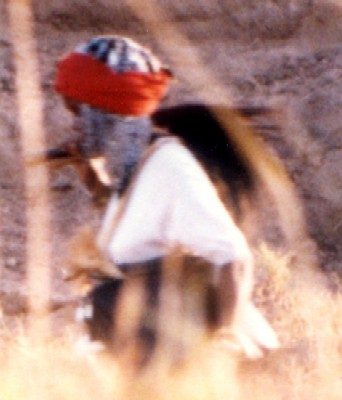
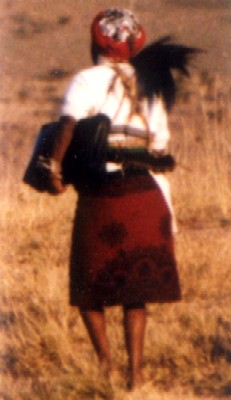
[An isangoma on her way in Zilulwane, Mahlabatini district, Zululand]
"Isangoma" is frequently quite wrongly translated as witchdoctor, because she or he (there are also a few male izangoma) is neither a witch, nor a doctor. Witchcraft is the trade of the umthakathi and treatment of sickness is the task of the iNyanga. If you want to understand the role of the isangoma, I must tell you the conception of sickness in the traditional Zulu society: According to their conception there are only three possible reasons for any evil, mishap or bad event (including sickness, loss of employment, accidents, failure at school, lightening strikes, bad harvest, and many more):
One has been bewitched by an umthakathi (witch)
Imimoya emibi (evil spirits) influence ones life
Ones amadlozi (ancestral spirits) "remind" him/her that a sacrifice for them is overdue.
If there is persistent trouble of any kind in ones life, they think that the one must consult an isangoma. Such a consultation is normally a family event. The isangoma is told all the complaints and the consulting client and his/her family will be asked many questions. The isangoma will then call the ancestral spirits and their arrival is said to be indicated by sneezing. The ancestral spirits will be reverently welcomed by the whole family with their title of honour "makhosi! makhoso! makhosi!" Through inspiration by the ancestral spirits the isangoma is then believed to be able to ukubula (smell out) the source of the evil.
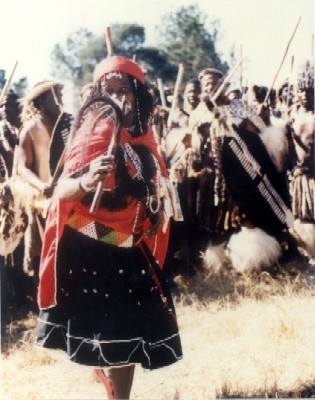
[iSangoma dancing at kwaPhindangene, Mahlabatini district, Zululand, on 29 May 1987]
If it is believed that a person is supposed to have caused the sickness, misfortune etc. - and who they therefore call an umthakathi (witch) - it is considered that the only choice would be to kill this person.
If imimoya emibi (evil spirits) have been diagnosed to cause ones trouble, an iNyanga (herbalist) will be consulted and all sorts of prophets and abafundisi will be readily available to drive out these "evil spirits".
If the amadlozi (ancestral spirits) are seen to have expressed their thirst for blood and utshwala (Sorghum-beer) through the person's sickness, an umsebenzi (ancestral sacrifice) is meant to be offered, i.e. a beast or a goat will be slaughtered and the amadlozi are supposed to receive their fair share of the sacrifice (the gall is sprinkled in the cattle kraal and the amadlozi are presented with an ukhamba (claypot) full of blood and one full of beer, which is put for them into the umsamo (crescent shaped distinct area in the back of the main hut of the kraal) to quench their thirst. As a lasting reminder for the amadlozi, that ones duty has been fulfilled faithfully, the horns of the sacrificial goat or beast are put on top of the entrance on the roof of the main hut in the kraal and a bracelet made from the skin of the slaughtered animal is put round the wrist of the family members, as the amadlozi are supposed to quench their thirst for blood from the "symbolically residual" blood on the bracelet and won't harm the family members then.


[iziNyanga from the Mahlabatini area, Zululand]
iziNyanga are herbalists, and many of them have a truely good knowledge of many natural substances, which have a real remedial effect.
Such medicines come from many different sources, one of these is the bark of certain trees.
The Zulu word "umuthi" has a triple meaning: Tree, bark and medicine.
It is frequently wrongly abbreviated as "Muti" by non-Zulu-speakers.
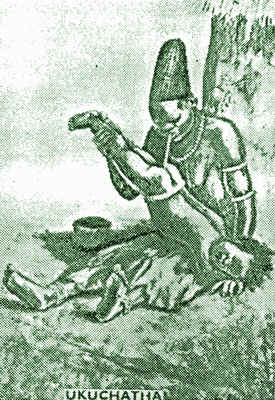





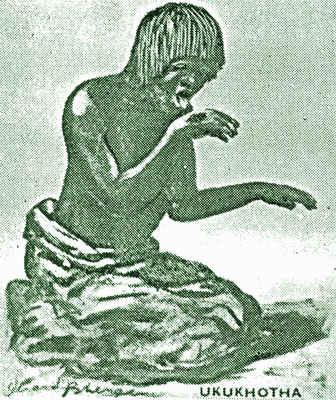
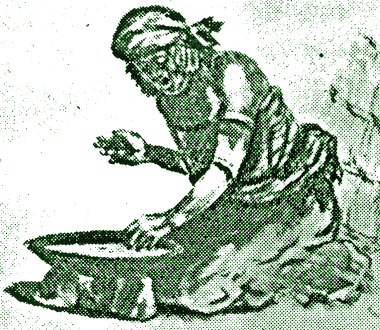
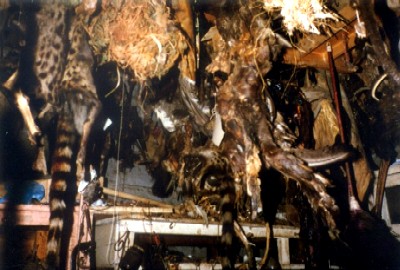
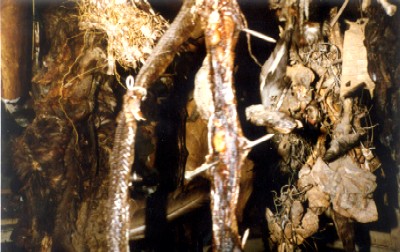
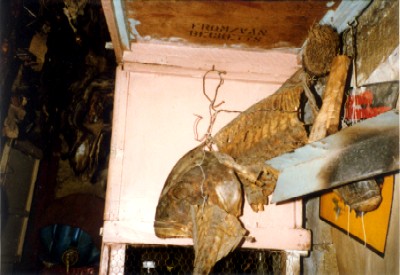
[At the "chemist's" shop in Mahlabatini, Zululand]

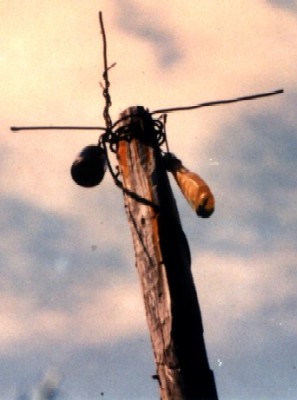
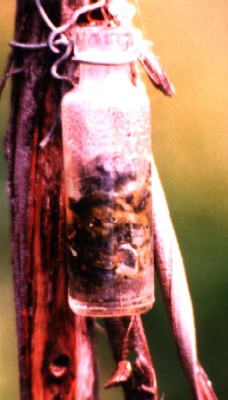
[iMithi in Ntandakuwela, Mahlabatini district, Zululand]
A picture of a iMithi "factory"

Back to the homepage of the Brotherhood of Blessed Gérard![]()
This page was created on 1 May 1999 and last updated on Friday, 18 March 2016 13:16:26